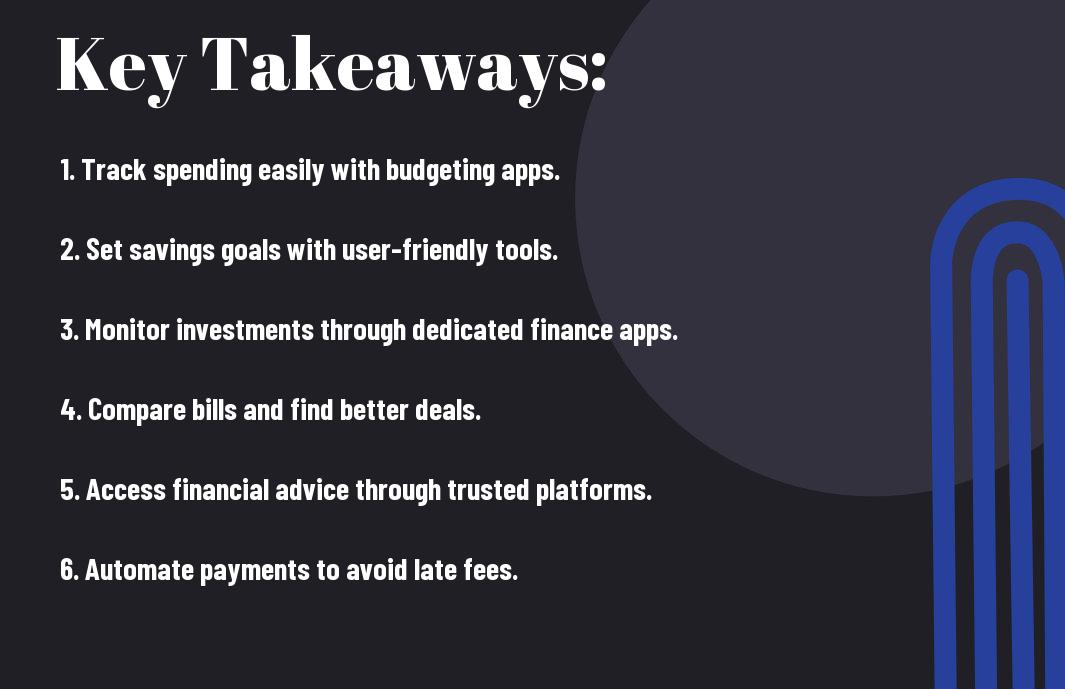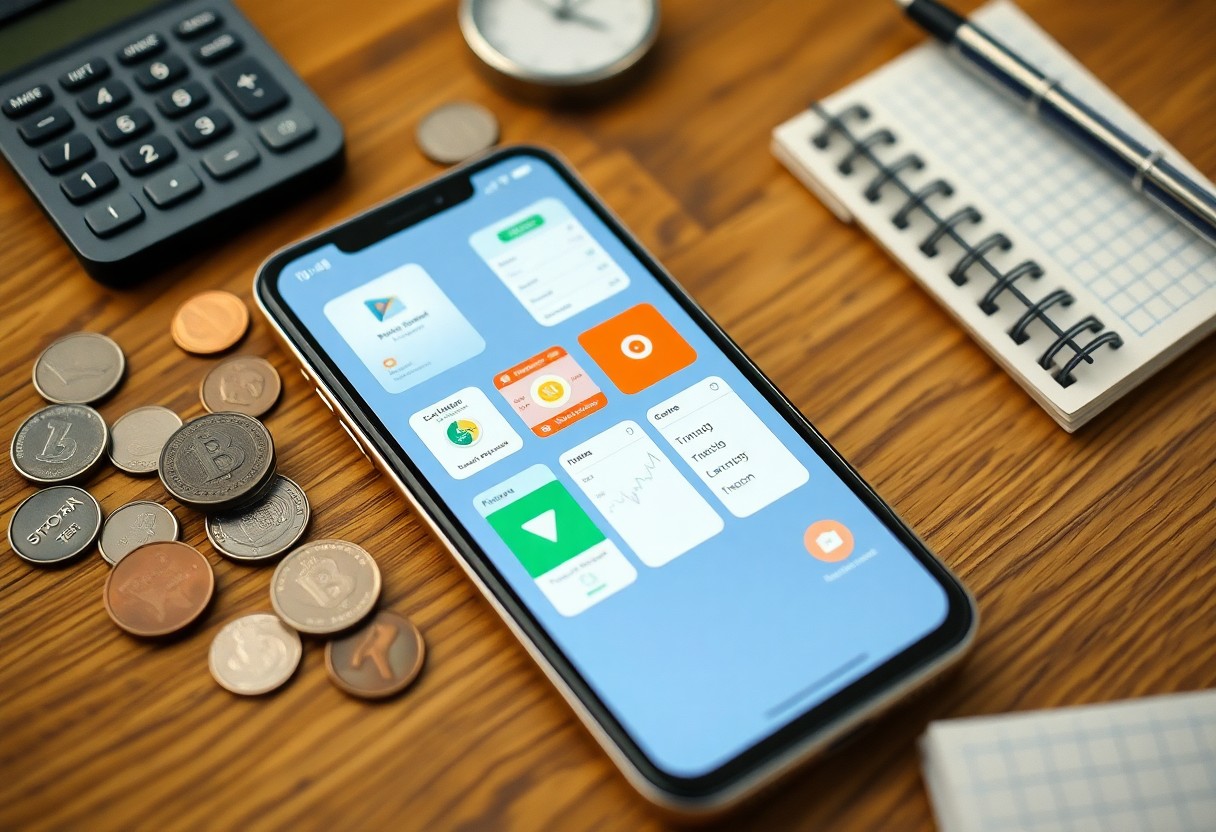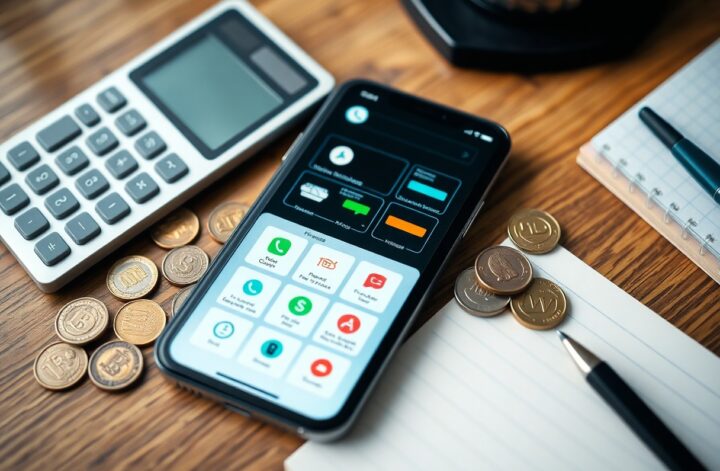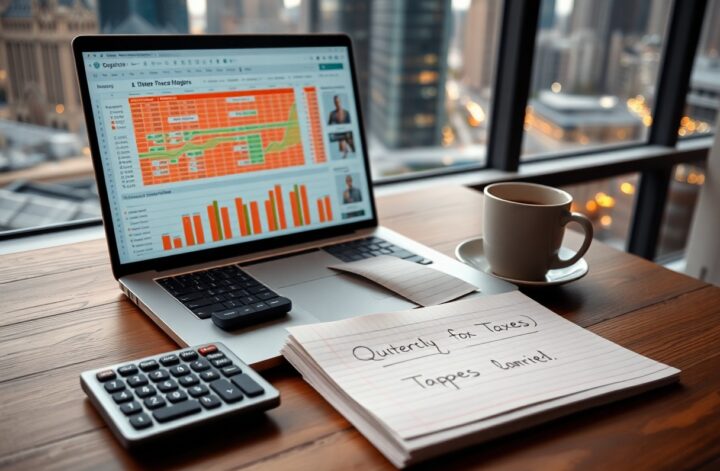Most people find managing personal finance challenging, especially with so many options available today. Fortunately, technology offers you fantastic tools to help simplify this task. In this blog post, we’ll explore some of the best apps to manage your finances effectively. From budgeting to tracking expenses, these tools can make your financial life easier. For more detailed insights, check out these 10 best free personal finance apps to get started.
Key Takeaways:
- Choose an app that fits your needs—look for features like budgeting tools, expense tracking, and savings goals.
- Security matters—always opt for apps with strong encryption and privacy policies to protect your financial data.
- Regularly review your spending habits using the app to identify areas where you can save more money.

Why Personal Finance Management is Important
While you may think managing money is only for adults with big salaries, it’s actually vital for everyone. Effective personal finance management helps you track your spending, save for the future, and avoid debt. By understanding your financial health, you can make smarter decisions and gain peace of mind. In today’s digital age, with countless apps available, it’s easier than ever to take control of your finances and plan for what lies ahead.
Understanding Your Financial Situation
The first step toward better financial health is understanding your current situation. You need to know how much money you earn, where it goes, and what your debts look like. Tracking your income and expenses helps you see patterns and spots for improvement. By analyzing your financial habits, you can take charge and make informed choices about spending and saving.
Setting Financial Goals
Between your daily expenses and unexpected costs, it’s easy to lose sight of your long-term financial goals. However, setting clear financial goals helps keep you focused and motivated. Whether you want to save for a car, a college education, or even a vacation, defining these goals gives your money a purpose. Goals can be short-term, like saving for a new outfit, or long-term, like preparing for retirement.
Setting specific, measurable, achievable, relevant, and time-bound (SMART) goals can significantly improve your financial journey. For example, instead of saying you want to save money, set a goal to save $500 for a new laptop in six months. This approach gives you something concrete to strive for, making it easier to track your progress and adjust your spending habits accordingly.
Key Features to Look for in Finance Apps
Some key features can help you find the best finance apps to manage your money. Look for apps that offer:
- Budget tracking to monitor your spending
- Expense categorization to see where your money goes
- Bill reminders to avoid late fees
- Investment tracking for your financial growth
- Customizable financial goals for motivation
- Reports and analytics to understand your habits
Recognizing these features will make it easier for you to choose an app that meets your personal finance needs.
User-Friendly Interface
Around half of the success of a finance app comes from how easy it is to use. You want an app with a clear layout and simple navigation. This way, you can quickly find what you need without frustration. A user-friendly interface allows you to focus more on your finances and less on figuring out how to use the app.
Security and Privacy
Around 90% of users worry about their financial data’s security. You should look for apps that offer strong encryption to keep your information safe. It’s crucial that the app has a privacy policy you understand. Read reviews to see if other users had any issues with security. Always choose apps that prioritize your data protection.
With constant news about data breaches, ensuring your financial app is secure is more important than ever. Choose apps that offer features like two-factor authentication and strong passwords. These measures can help keep your finances safe from hackers. Additionally, look for apps that do not sell your personal data, ensuring your privacy is protected.

Top Personal Finance Apps Overview
Despite the many tools available, managing your personal finances can still feel overwhelming. The right apps can help simplify budgeting, track expenses, and grow your investments. With so many options on the market, it’s important to find ones that suit your specific needs. Let’s explore the best apps that can make handling your personal finance a breeze.
Budgeting Apps
Any solid budgeting app helps you allocate your money wisely. These apps let you set up budgets based on your income and expenses. By using budgeting apps, you can visualize where your money is going and make better choices about spending and saving.
Expense Tracking Apps
At the heart of good financial management are expense tracking apps. These tools allow you to monitor your daily spending easily. You can see exactly where your money is going, which helps avoid overspending. This insight can lead to smarter financial decisions.
Further, many expense tracking apps sync with your bank accounts and credit cards. This feature saves you time and ensures that your data is up-to-date. Some popular options even categorize your spending automatically, making it easier for you to spot trends and areas for improvement.
Investment Apps
Expense management is just one part of financial well-being. Investment apps play a key role in helping you grow your wealth. They offer tools to trade stocks and manage portfolios right from your smartphone.
Due to the rise of these apps, investing has become accessible to everyone. Many platforms offer educational resources, making it simple for you to understand the market. Whether you’re a beginner or an experienced investor, these apps can help you create a personalized investment strategy that fits your goals.
In-Depth Review of Popular Finance Apps
Your journey to mastering personal finance begins with the right tools. In this section, we’ll probe some popular finance apps recommended for you to consider. For the latest updates, check out the Best Budgeting Apps of 2025.
Mint
Before you probe budgeting, you might want to explore Mint. This app helps you track your spending and manage your bills all in one place. You’ll find it easy to create budgets based on your spending habits, making it a user-friendly option for anyone looking to gain financial control.
YNAB (You Need A Budget)
Beside budgeting, YNAB is popular because it teaches you to allocate every dollar you earn. By using this app, you learn to create a plan that works for your unique financial situation.
Apps like YNAB focus on proactive management. They encourage you to think about your goals before you spend. With features that allow you to assign funds to various categories, you become more intentional about your financial choices. YNAB also provides robust educational resources, helping you not just budget, but understand your finances in depth.
Personal Capital
Between budgeting and investing, Personal Capital offers you a comprehensive view of your finances. This app helps track investments and net worth while providing insights into your spending patterns.
Understanding your financial health can be quite powerful. Personal Capital allows you to see all your accounts in one place, giving you a clearer picture of your assets and potential retirement savings. The app also provides tools that help you analyze and optimize your investments over time, making it a great choice for those looking toward the future.

Tips for Effectively Using Finance Apps
Now, to get the most out of your finance apps, follow these practical tips:
- Choose the right app that meets your needs.
- Link your bank accounts for accurate tracking.
- Set notifications for bill payments and budget limits.
- Regularly review your spending habits.
This strategy will help you stay organized and in control of your finances. For more on the best apps available, check out Technology and finances: The best apps to manage your ….
Regularly Update Your Financial Information
Across all finance apps, keeping your financial information updated is vital. By regularly syncing your bank accounts and transactions, you gain accurate insights into your spending patterns. This accuracy allows you to make informed decisions and spot areas where you can save.
Set Realistic Budgets
Tips for budgeting should always start with setting realistic goals. You want to create a budget that works for your income and expenses without overwhelming yourself. Analyze your monthly spending and find categories where you can cut back.
Financial discipline is important when sticking to a budget. Ensure your limits are achievable, so you don’t feel discouraged. It’s wise to allocate a small portion of your budget for fun expenses, too. This balance will help you maintain your budget over time.

Common Mistakes to Avoid with Finance Apps
To get the most out of finance apps, it’s important to avoid common mistakes. Users often overlook imperative features, set unrealistic budgets, or become overwhelmed by too many options. These errors can lead to confusion and missed opportunities for better financial management. By being aware of these pitfalls, you can make smarter choices and maintain control over your personal finances.
Ignoring Security Features
After downloading a finance app, it’s easy to skip security features in the excitement of managing your money. However, ignoring these features can leave your sensitive information vulnerable. Always ensure the app uses strong encryption and offers two-factor authentication. These steps help safeguard your data and provide peace of mind as you track your finances.
Overcomplicating Budgeting
Security is imperative, but it’s equally important to keep budgeting simple. Many users fall into the trap of creating overly complicated budgets with too many categories and unclear goals. This can lead to frustration and eventual abandonment of the budgeting process. Instead, try breaking your budget into a few straightforward categories like imperatives, savings, and fun spending, allowing you to track your finances more effectively.
Consequently, a simplified budgeting approach can help you stick to your financial goals. Focus on setting realistic limits and review them regularly. This ensures your budget is effective and adjusts as your situation changes. Use tools within your finance app that promote simplicity, guiding you towards better money management without feeling overwhelmed.
Final Words
Now that you know about the best apps to manage your personal finance in the digital age, you can take control of your money more easily. These tools can help you budget, track expenses, and save for future goals. By using the right app, you can gain a clearer picture of your financial health and make smarter spending choices. Choose an app that fits your lifestyle and start using it today to improve your financial well-being.
FAQ: The Best Apps to Manage Your Personal Finance in the Digital Age
Q: What are the best apps for budgeting?
A: Some of the best apps for budgeting include Mint, YNAB (You Need a Budget), and PocketGuard. These apps help you track your income and expenses. Mint allows you to see all your accounts in one place, while YNAB focuses on helping you allocate your money effectively. PocketGuard shows how much money you have left to spend after bills and savings.
Q: How do personal finance apps help with saving money?
A: Personal finance apps can help you save money by tracking your expenses and setting savings goals. They can analyze your spending habits and suggest places to cut back. Many apps also offer features like automated savings, where a certain amount of money can be transferred to your savings account regularly based on your budget.
Q: Are these finance apps secure?
A: Yes, most personal finance apps use strong encryption methods to keep your data safe. Apps like Mint and YNAB use bank-level security protocols to protect your financial information. Always check for reviews and the company’s privacy policy to ensure your data is handled securely.
Q: Can I use these apps on multiple devices?
A: Yes, most personal finance apps are designed to work on multiple devices. You can access your budget and financial information on your smartphone, tablet, or computer. Apps often sync your data across devices so you can manage your finances anytime, anywhere.
Q: Do I need to pay for personal finance apps?
A: It depends on the app. Some apps, like Mint, are free to use and offer premium features at an additional cost. Others, like YNAB, require a subscription fee to access full features. Always check the pricing before choosing an app to find one that fits your budget.
Key Takeaways
- Popular budgeting apps like Mint, YNAB, and PocketGuard can help you manage your finances effectively.
- These apps track spending, set savings goals, and help identify areas where you can save money.
- Security is important; choose apps that use strong encryption to protect your data.
- Many personal finance apps work on multiple devices for your convenience.
- Explore both free and paid options to find an app that suits your financial needs.




